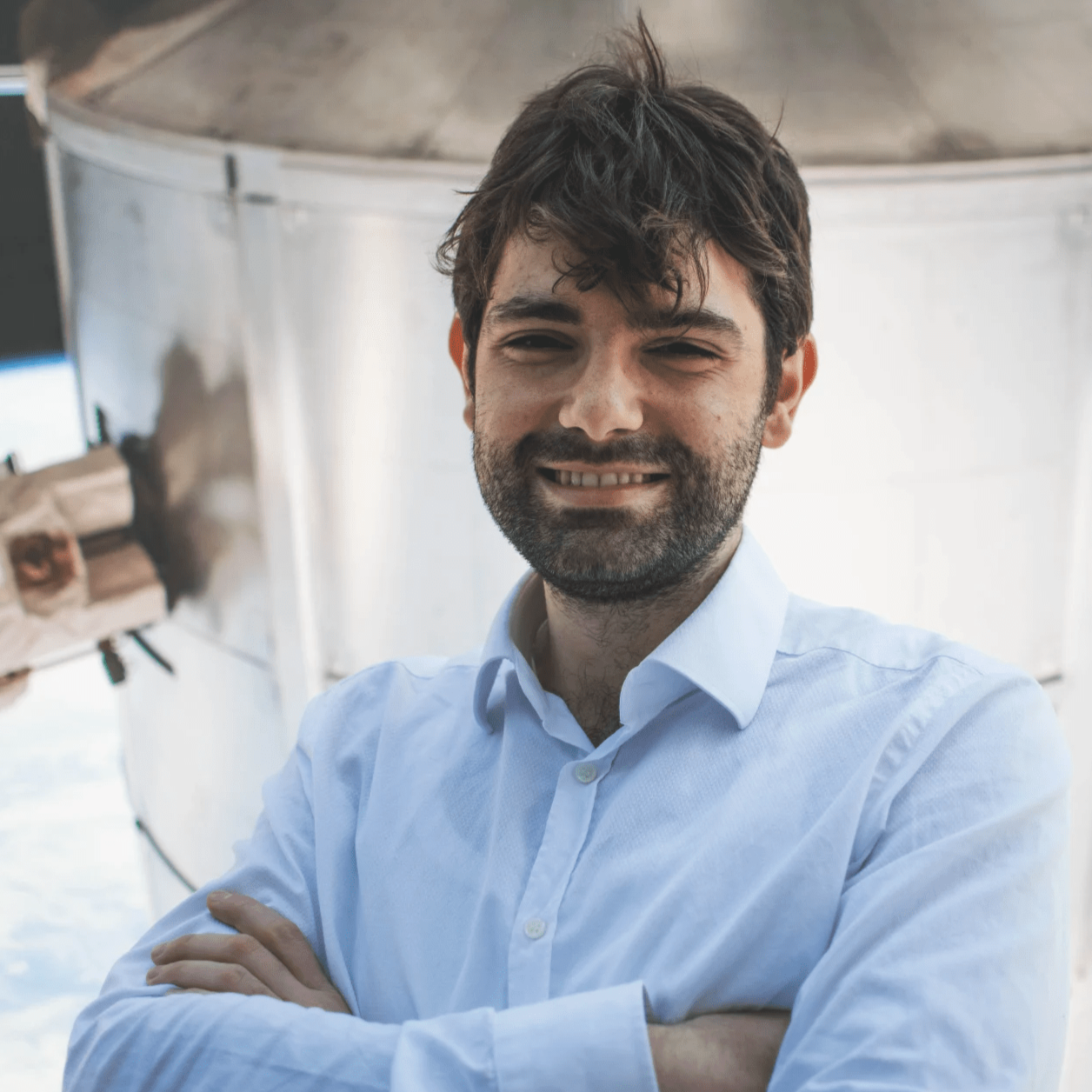19th ERCOFTAC Da Vinci Competition 2024 - Interview with Da Vinci Finalists
Fabio Pino
(The von Karman Institute for Fluid Dynamics, Belgium)

Fabio Pino - finalist
of 19th Da Vinci Competition 2024
- What is the topic of your Ph.D. thesis?
"Feedback Control of Liquid Metal Coating
My PhD focused on improving surface quality in an industrial process called hot-dip galvanising, involving coating steel plates with a thin zinc layer for corrosion protection. At high production rates, an undulation instability produces uneven coating distributions. I developed feedback control strategies, using gas jets and magnetic actuators, to suppress these waves based on limited film-thickness measurements. The work combined reduced-order modelling, linear stability analysis, numerical simulation, and machine learning: I derived a three-dimensional integral thin-film model to reduce the computational cost of designing an optimal feedback controller, and I determined the optimal sensor location via an absolute–convective instability analysis. Finally, a reinforcement-learning algorithm was trained to control the actuators, which discovered a combined control strategy (gas jets pushing the crests and magnetic actuators lifting the troughs) reducing wave amplitudes by a sizeable amount.
- What does the Da Vinci competition mean to you?
The Da Vinci competition represented a pivotal professional milestone and a meaningful personal achievement. Being selected as a finalist by a jury of internationally renowned experts was a great honour that strengthened my confidence in my research path and renewed my commitment to pursue an academic career. Moreover, presenting my project and engaging with other outstanding researchers was invaluable for enlarging my network. The experience also compelled me to present my PhD thesis with its questions, methodology, and results, into clear, accessible language for non-specialists.
- What triggered your interest in STEM?
What has always drawn me to STEM is the chance to understand the world at a fundamental level and to apply that understanding to solve complex, real-world problems. As a child, I was captivated by puzzles, riddles and construction games, anything that engaged me to spot patterns or devise solutions, and that same curiosity has been nourished by a career in STEM, now channelled through rigorous mathematical and physical tools. For me, an academic career is a long-term journey: the destination is defined by the problems you choose to pursue, often requiring years to resolve. The research process itself fosters personal growth, professional development, and the advancement of the broader community around us.
- Do you have any advice for others in STEM?
Stay passionate and curious about how the world works. A career in STEM can be unpredictable and demanding, from securing funding and finding stable positions to building a supportive research environment, so cultivate resilience and an open mind. Let your love of discovery guide you and be willing to explore unconventional paths when they speak to your interests. At the same time, be strategic: choose research questions that resonate with broader academic or industrial communities, invest your time and energy wisely, and set clear short- and long-term goals. Seek out the right collaborators and sustain supportive networks; this combination of curiosity, focus, and community will help you navigate setbacks and make the most of your efforts.
- What motivates you in your work?
My core motivation is a deep desire to understand the world. I take great satisfaction in learning new concepts, uncovering unexpected connections, and gradually building a clearer picture of how systems behave. Each small insight contributes to a broader body of knowledge, making the process both intellectually rewarding and creatively fulfilling. I particularly enjoy translating abstract ideas into concrete, understandable terms. Beyond academic curiosity, this outlook has become a way of life: I constantly ask how things work, why they behave as they do, and how we can harness those physical mechanisms for technological progress.
- Where do you see yourself in five years?
Within the next five years, I aspire to secure a tenure-track position at a university or research institute and establish my own research group. My goals include obtaining competitive research funding, mentoring PhD students and postdoctoral fellows, and cultivating strong interdisciplinary collaborations. Positioned at the intersection of mathematics, physics, and engineering, my work bridges fundamental theory and industrial applications; I therefore plan to lead projects that strike a balance between intellectual depth and practical impact. Above all, I am committed to creating a supportive research environment that encourages and empowers students development throughout their academic journeys.
- What advice would you give to new PhD students starting in fluid mechanics?
I encourage students to be methodical and proactive in setting goals, daily, weekly, and long-term, as effective time management and clarity of purpose are essential. Equally important is cultivating independent thinking: avoid being constrained by peer pressure or conventional expectations. Develop a critical mindset, shape a personal research vision, and concentrate on understanding the problem rather than rushing to the solution. Sustained engagement with the question not only preserves motivation but also drives meaningful progress. I also recommend dedicating a small, regular portion of time (around 10% each week) to structured learning, whether through reading, online courses, or exploring new topics. This habit broadens perspectives, equips you with valuable tools, and helps you regain momentum when your main project reaches a plateau.
Da Vinci Presentation available here
Paper summary
Date: ERCOFTAC Autumn Festival 2024, 10th October 2024
Hosted by Pilot Centre United Kingdom: Imperial College London, UK
